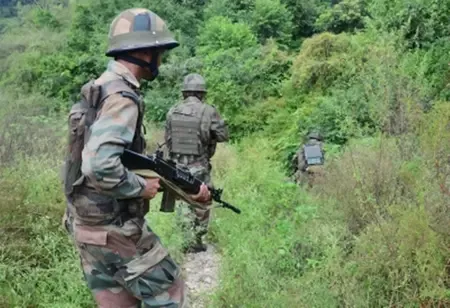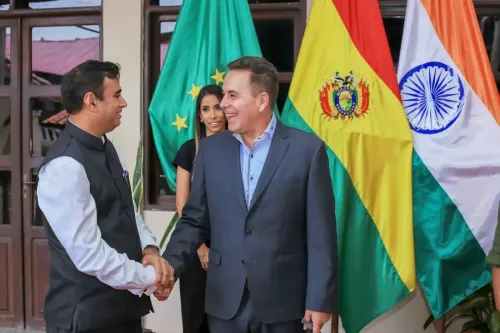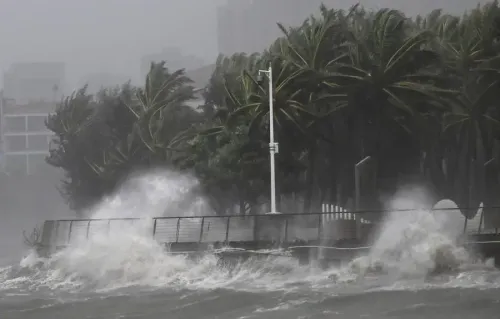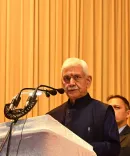What New Strategic Response is Needed After the Pahalgam Terror Attack?

Synopsis
Key Takeaways
- Comprehensive counter-terror strategy: A multi-faceted approach is essential for long-term security.
- Intelligence enhancement: Strengthening local intelligence units is crucial for proactive threat detection.
- Community cohesion: Promoting social harmony can mitigate the influences of extremism.
- International support: Leveraging global partnerships can strengthen counter-terror efforts.
- Monitoring pro-Pak elements: Active surveillance of potentially harmful groups is necessary.
New Delhi: The tragic event on April 22, which resulted in the death of 26 Hindu tourists and injuries to many more in Pahalgam, was orchestrated by a group of four terrorists, including three from Pakistan and one local. Clad in army uniforms and armed with automatic weapons, their assault has raised urgent questions about India’s counter-terror strategy, necessitating a comprehensive approach to deter future attacks from Pakistan.
The group responsible for this heinous act is believed to be led by a former Pakistani soldier. The context of these killings is marked by the stark contrast between the purportedly improved security environment in Kashmir, which has encouraged tourism, and the escalating tensions in Indo-Pak relations. India has reiterated its commitment to addressing the unfinished agenda of liberating Pakistan-occupied Kashmir, while Pakistan's Army Chief, Gen. Asim Munir, has declared Kashmir as the 'jugular vein' of Pakistan, emphasizing their resolve to fight for it.
In a recent inflammatory statement, Gen. Munir invoked the 'two-nation' theory, expressing hostility towards India and suggesting covert operations aimed at undermining India's assertions of progress in Kashmir. The attackers, claiming to be part of The Resistance Front (TRF), a faction associated with the Pakistan-based Lashkar-e-Taiba (LeT), specifically targeted Hindu tourists, identifying their victims before executing them, which highlights the premeditated nature of the assault.
This incident serves as a grim reminder of the 1990 exodus of Kashmiri Pandits, orchestrated by militants under the direction of the Pakistani ISI, aimed at solidifying Pakistan's claim on the region through communal violence. Today, the Pakistani military continues to wrestle for geopolitical positioning while aligning itself with China, as evidenced by Gen. Munir's recent visit to Beijing to enhance defense cooperation.
Pakistan's strategic alliances have shifted, particularly with the Taliban's resurgence in Kabul, facilitating a barter system where China extends its Belt and Road Initiative (BRI) to Afghanistan, while the Taliban maintains silence regarding the treatment of Muslim minorities in China. This intertwining of radical Islam with state-sponsored covert operations against India poses ongoing threats.
Historically, the Pakistani military, in collaboration with the ISI, has sought to replicate its success in Afghanistan within Kashmir, using groups like Harkatul Ansar (HUA) to escalate violence against Indian interests. The historical context of such radicalization can be traced back to the 19th century, where Islamic radicals targeted Western influence in Muslim territories.
While some militant factions have received backing from the ISI, others like Hizbul Mujahideen (HuM) and Lashkar-e-Taiba have benefited from foreign support, complicating the landscape of terrorism. The U.S. has struggled to differentiate between 'good' and 'bad' terrorists, often leading to misguided policies that have affected regional stability.
The U.S. and Russia have condemned the Pahalgam attack, bolstering India's position to take decisive action against terror havens beyond its borders. Domestically, India must address elements that undermine constitutional unity by demanding special political rights for any religious minority. The presence of pro-Pakistani elements, particularly in Kashmir, needs to be actively monitored to prevent the establishment of sleeper cells.
To safeguard national security, India should not only rely on military presence but also enhance its intelligence capabilities to track adversaries during peacetime. The establishment of Local Intelligence Units (LIUs) has proven to be critical in this endeavor. The Pahalgam incident underscores the need for a proactive approach to intelligence, emphasizing that any warning should prompt immediate action.
It is reported that there was prior intelligence regarding suspicious activities in Pahalgam, and it is crucial to ascertain the response from local authorities. Security failures often stem from inaction on available intelligence, highlighting the importance of treating every piece of information as a potential indication of larger threats.
(The writer is a former Director of the Intelligence Bureau)









